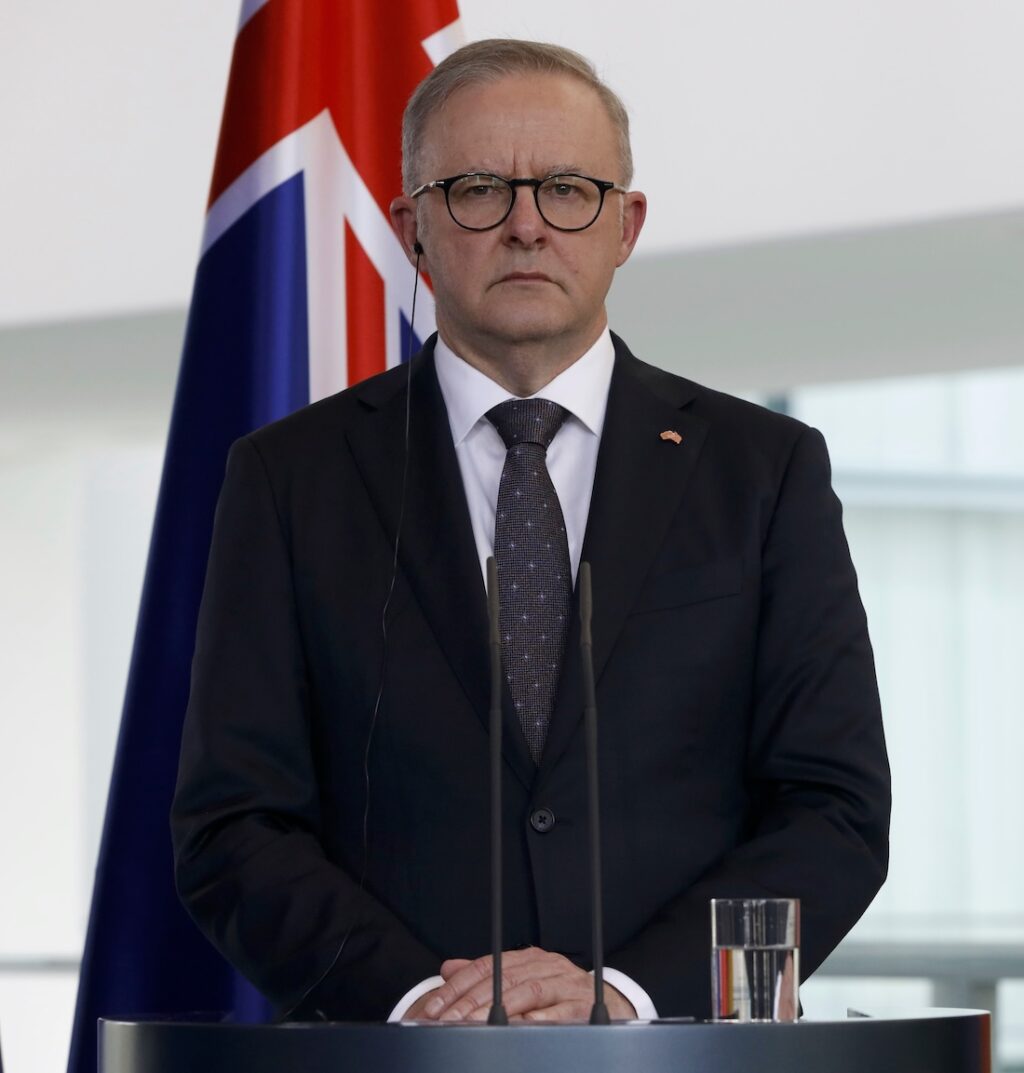
Berlin, Germany, July 10, 2023. Australian Prime Minister Anthony Albanese is received with military honors by German Chancellor Olaf Scholz at the Federal Chancellery in Berlin.
Australian Prime Minister Anthony Albanese faces growing criticism for his perceived inaction regarding international human rights violations, particularly in relation to the ongoing conflict in Gaza. Critics argue that his failure to address the actions of allies, namely Israel and the United States, compromises Australia’s sovereignty and undermines the values the nation claims to uphold.
A recent analysis highlights that Albanese’s government has not taken decisive measures to condemn what many describe as genocidal actions against the Palestinian population. The Prime Minister’s silence on these issues raises questions about Australia’s commitment to its own principles of fairness and justice. The government has not imposed sanctions or cut military ties, despite reports from the International Court of Justice (ICJ) regarding allegations of genocide.
The implications of this inaction extend beyond foreign policy. By aligning closely with US military strategy through the AUKUS pact, which involves a $368 billion investment in nuclear submarines, Australia risks entrenching itself as a junior partner in conflicts that do not directly serve its national interests. Critics assert that this commitment may entangle Australia in military confrontations, particularly in the context of rising tensions with China.
Concerns Over Media Influence and Public Perception
The role of media in shaping public perception also comes under scrutiny, as Rupert Murdoch‘s News Corp dominates the Australian media landscape. Observers note that narratives promoting militarism and justifying Israeli actions have become prevalent, while Palestinian voices remain marginalized. Public broadcasters, including the ABC and SBS, have been criticized for failing to uphold their obligations to impartiality.
This situation raises alarms about the conditioning of the Australian public to accept militarism and foreign dominance as normative. The implications of such narratives are profound, as they may lead citizens to overlook the moral implications of international relations. Amin Saikal, an expert on international relations, notes that Israel’s reliance on US support has enabled its military actions in Gaza, which would not be feasible without significant aid.
Calls for Action and Accountability
Advocates for a more principled foreign policy urge Albanese to take immediate action. They recommend several steps that would demonstrate Australia’s commitment to international law and human rights. These include publicly rejecting complicity in genocide, recalibrating the AUKUS agreement to emphasize Australia’s sovereignty, and ensuring that the principles of the UN Charter and the Geneva Conventions are applied universally.
The ongoing crisis in Gaza serves as a critical test for Albanese’s leadership. As the situation unfolds, the Australian government’s response will likely shape its international standing and moral capital for years to come. Many Australians are watching closely, awaiting a decisive stance that aligns with the nation’s professed values of justice and respect for human rights.
The choice before Albanese is clear: whether to continue the current trajectory of inaction or to assert Australia’s values on the global stage. History will remember the actions taken or left undone during this pivotal moment.







